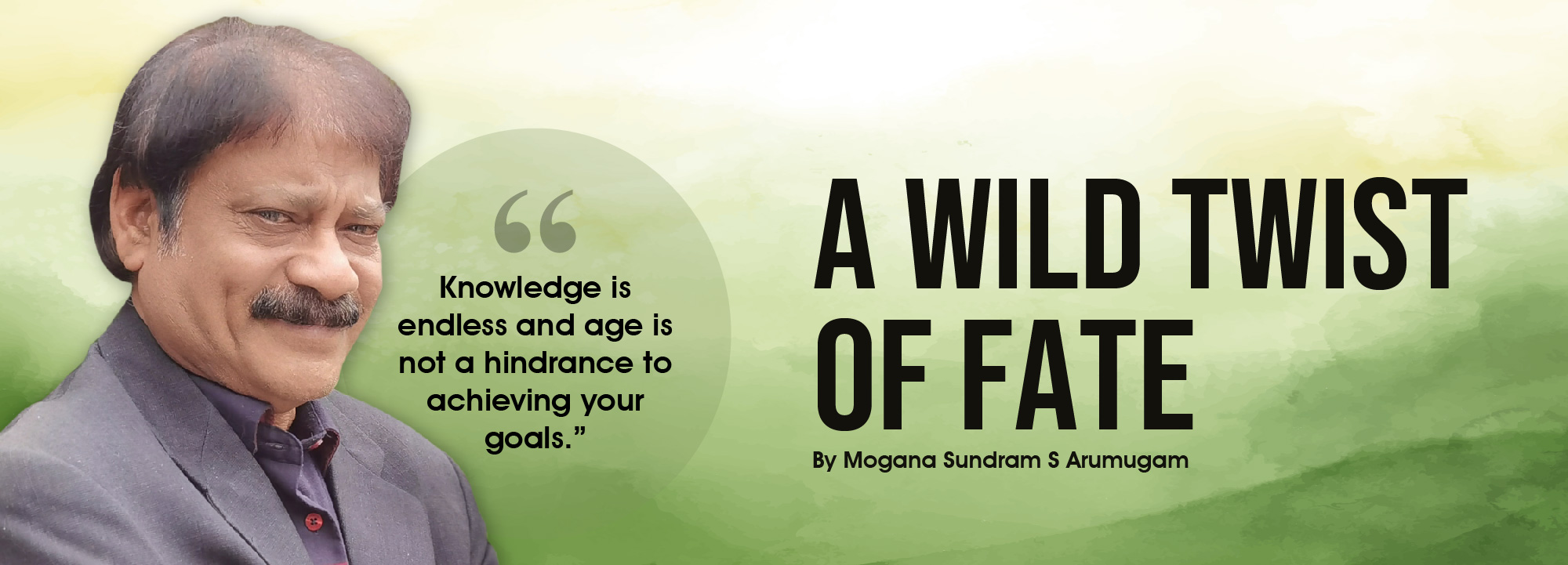
Life’s twists and turns often catch us by surprise. Who would have guessed that I would discover a new side to myself well into my golden years?
I worked as a senior wildlife assistant for more than 30 years. It really was a wild job, and I did everything from arresting poachers, resolving human-wildlife conflict, translocating animals, and educating the public on wildlife-related issues. I also helped with research sampling, prepared inventory on fauna, and helped manage wildlife reserves.
I was good at observing animal behaviour, and could tell when animals were sick, inactive, stressed, or injured. I published papers on animal behaviour, the last one involving the long-tailed macaque. The job also took me around the world: I attended certification courses in India and took part in studies in Australia. I even won a competition that took me to Masai Mara National Park in Kenya, a dream come true for any wildlife lover!
My adventures are not over yet. This December, I will be representing Malaysia with a poster presentation on the spiders of Taman Alam, Kuala Selangor at the sixth conference of the Asian Society of Arachnology in Kerala, India.
I had a fulfilling career and opted to retire in 2017. Sadly, after undergoing surgery to remove a benign growth in her brain, my wife was diagnosed with bipolar disorder in 2015. Prior to that, we had lost her elder brother to suicide. I felt upset and helpless because I had no clue how to help them. So, at the age of 61, having had no university education but realising I must do something to support my wife, I decided to enrol in the Bachelor of Psychology (BPSY) programme at OUM.
And what an eye-opening experience it’s been!
I’ve discovered that it’s easier to observe animals because they don’t pretend, but people are difficult to understand because of our covert and overt tendencies. This is humbling to me, because studying psychology has changed the way I see people. I have learnt to refrain from stereotyping and judging others. I am more mindful. I have a better understanding of verbal and nonverbal cues. And by focusing on intrapersonal communication, I find new ways to solve my problems.
In the early days of my wife’s diagnosis, I spent a lot of time in the psychiatric ward, watching and talking to other patients as my wife underwent treatment involving electroconvulsive therapy and drugs. Thanks to the BPSY programme, I later understood that psychotherapy without drugs could also help. So, I started walking and playing Scrabble with her, talking to her positively, meditating together, and helping her in the kitchen. I found that showing empathy brought about positive changes in her.
In short, OUM has changed my life. Not only have I achieved a lifelong dream to finally have a university degree, but I now have a better understanding of my wife’s condition and can give her the support that she needs.
For all this, I am truly grateful.
Mogana Sundram S Arumugam is a father of three. A Kuala Lumpur native, this 66-year-old worked at the Department of Wildlife and National Parks of Peninsular Malaysia (PERHILITAN) for 33 years. He is now a learner in the Master of Counselling programme.
Life’s twists and turns often catch us by surprise. Who would have guessed that I would discover a new side to myself well into my golden years?
I’m from Negeri Sembilan and both my parents are professionals: my father is an engineer and my mother a chartered accountant.
Looking back at the last 15 years or so of my life, I can definitely say that I’ve been through a lot.
My parents’ wishes have always been on my mind: with seven children to provide for, commitments were aplenty and they never had a chance to study at university level.
When a golden opportunity arose to pursue the Bachelor of Psychology (BPSY) degree in 2012, Kanages Kasinathan @ Bhanu gladly grabbed it.